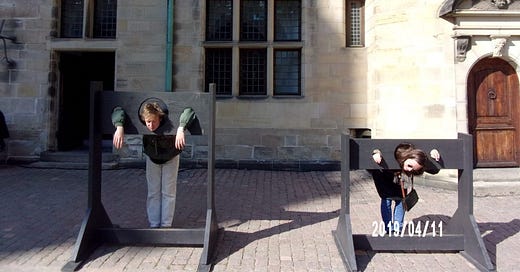Being a Victim is a Choice
How would you feel if I were to call you fat? Are you insulted? Or Indifferent? If you were to say it to me, I would just laugh. On the other hand, you may feel indifferent in situations where I feel insulted. Our subjective sensitivity suggests, it is our perception, not the insult, which harms us. It follows that being a victim is a choice.
Now I am not saying bullies don't exist. Bullies do exist, and their actions are reprehensible. However, a bully can only harm us with our consent–baring physical harm, perhaps. While this may seem harsh, it is empowering for the former victim. Through this, the former victim regains control over his emotional outcomes.
For example, in middle school, I was a fringe member of a group of friends. Sometimes they included me, but without significant effort on my part, they often forgot my invitation. Also, I suspected some of them spoke poorly of me when I wasn't around. The victim filter blames those boys for my social woes, but the blame was all mine. It was my choice to accept a dynamic that devalued my worth. It was also my responsibility to redirect my attention elsewhere.
Accepting responsibility for our outcomes, especially our emotional outcomes, is a sign of maturity. The opposite mentality is "woe is me" or the "I can't catch a break" guy. The fact is, anyone can view the world through this filter. Yes, some people have heavier challenges than others, but suffering and misfortune affect us all. When we recenter our focus to our ownership over our outcomes, we regain the strength and ability to chose favorable results.
In conclusion, the only person who can harm you is yourself. Feeling insulted by another person's words is giving them great leverage over you while forfeiting your autonomy. The way out of this trap is to take ownership over our outcomes and emotions.




